New play uses drama to show human impact of Palm Springs’ Section 14 evictions
Near the end of a new theater production, Alvin Taylor takes center stage to say, "Do you know that there are some folks who don’t want me to talk to you?" For most actors, the line would be just a narrative flourish. But for Taylor, it happens to be true.
The 71-year-old is a former resident of Section 14, a Palm Springs neighborhood that was demolished in the 1960s to make way for new development. Taylor can still recall the eviction process, which upended his childhood and the lives of many others. Certain accounts say evictions, which were on land by the Agua Caliente Band of Cahuilla Indians, happened so quickly some residents came home from work to find their houses on fire.
For Taylor, the play is a chance to exorcise some of the demons he says took root when his family's home burned to the ground, as well as illuminate the humanity of stories that have largely been forgotten.
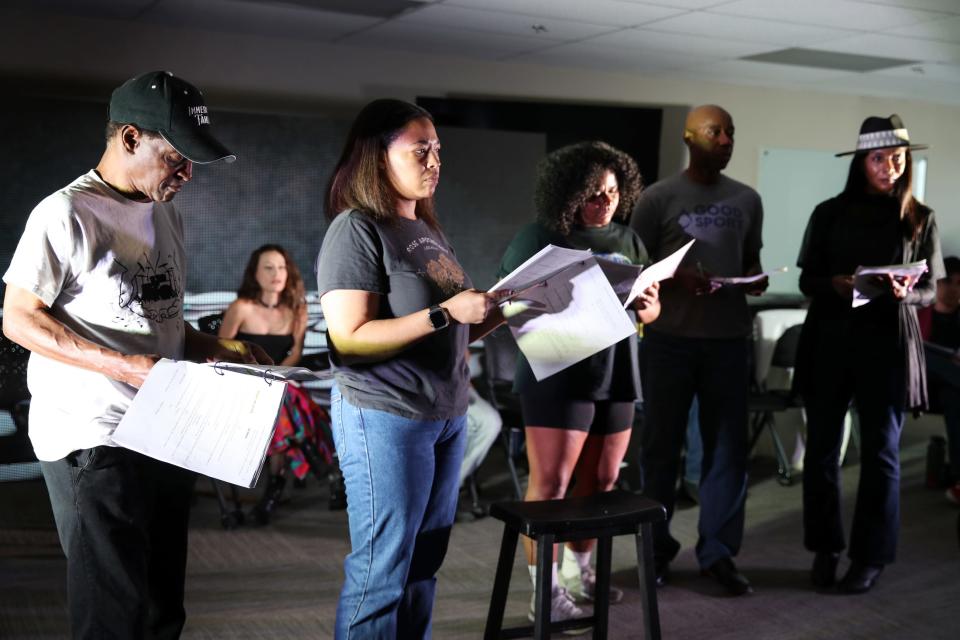
"There is an indelible scar that is there in my heart and my life that will never ever be fixed," Taylor said in a recent interview. "I just have to continue to deal with it the very best way that I can. This play is one way of using the means to heal."
More than a half-century after the homes were destroyed, "Displacement: Stories from Section 14" seeks to dramatize what some former residents call one of the darkest moments of Palm Springs' history. Using historical records to create characters based on real people, producers hope the play will inspire genuine conversations about what took place.
Seven staged readings will take place beginning this weekend and continuing next weekend.
"We're in a position to just lay bare truths, human truths," said director David Catanzarite. "We want to show the human side of this."
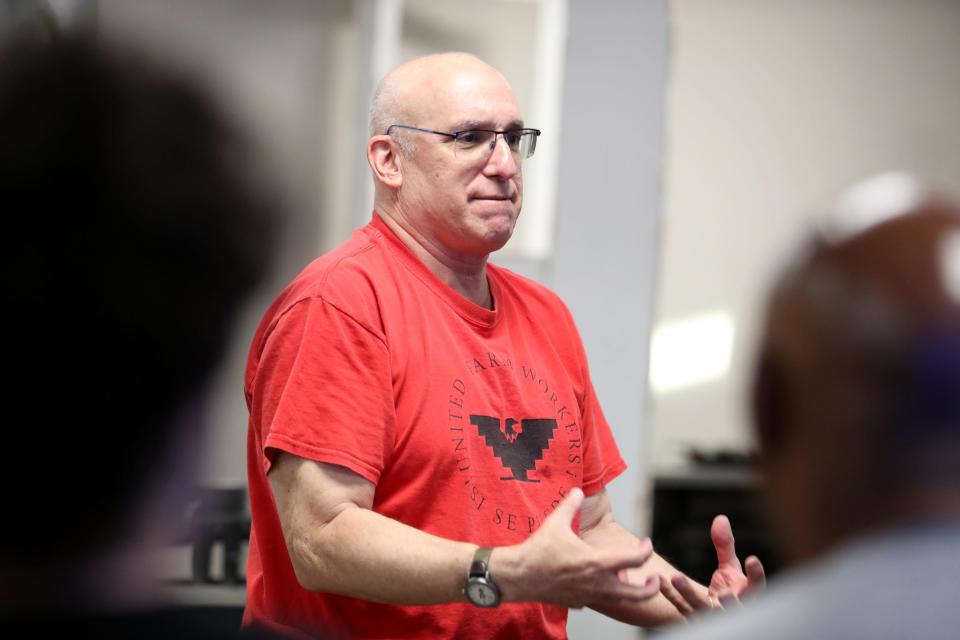
Stepping into controversy
The community theater production comes at a perilous time.
A group of former residents called Palm Springs Section 14 Survivors has filed a claim against the city seeking restitution for harms they say have endured for generations. In April, the city offered $4.3 million to settle the dispute, but the figure was roundly rejected.
The next month, Section 14 Survivors issued a counteroffer of $105 million. Palm Springs spokesperson Amy Blaisdell said at the time such a settlement "could easily bankrupt the city."
The two parties remain locked in negotiations, a delicate process that could be thrown off by any number of circumstances, including perhaps the new play.
In the midst of such negotiations, the leaders of Section 14 Survivors have distanced themselves from the production. Taylor is participating after leaving the group, which he co-founded along with his sister Pearl Devers and others.
"We know that in every fight for justice, there are forces that will seek to divide us and distract us from the mission at hand," the group's board of directors said in a joint statement in response to questions about the play. "We have seen this before in various forms. And yet, we also know we are stronger together than we are apart. As we always have, we remain singularly focused on reaching a resolution in partnership with the City of Palm Springs. That — and only that — will remain our top priority until there is restitution.”
Exactly who is responsible for the evictions and destruction of homes is a matter of an ongoing dispute. In the 1950s, the federal government initiated a series of reforms that eventually allowed Native American land to be leased for up to 99 years, instead of five years. This prompted the tribe to initiate a long-term development plan, which would lead to the short-term leaseholders being removed. Most of the residents of Section 14 were people of color, including Taylor, who is Black.
According to a fact sheet published by the City of Palm Springs, tribal members, conservators and guardians provided 30-day notices to residents to vacate the land. The matter is further complicated because a conservatorship program at the time barred the tribe from managing their own estates. The fact sheet states many of the guardians and conservators in Palm Springs were white.
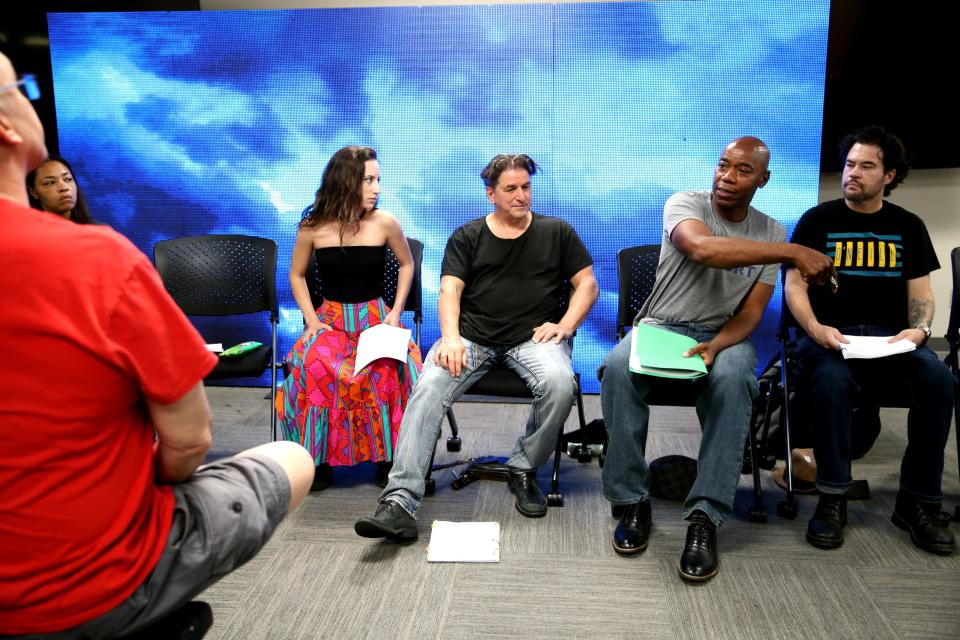
Ready for showtime
Green Room Theatre Company Coachella Valley, a nonprofit that aims to bring live productions to under-resourced areas, is putting on "Displacement." In its 16th season, the production company has previously staged Spanish folk dance performances and plays like "Maggie Magalita," a drama about a teenage girl reconnecting with her Hispanic roots.
A roughly $130,000 grant from the California Arts Council allowed Green Room to drastically raise its ambitions for the Section 14 production. Staged readings held over the last two weekends of June are planned to provide a live — and public — proof of concept. Producers hope to use the momentum generated by the readings to obtain more grant money to take the play on tour.
"It's a story that needs to be told," said Catanzarite, who also serves as Green Room's artistic director. "So many interesting and challenging and upsetting, and also funny, things have come to light because of this."
The play spans decades in its attempts to illustrate how Section 14 came to be, and how the residents who lived there felt about its ultimate demise. At a recent rehearsal, emotionally charged scenes were balanced with humor and levity.
Although the actors didn't show it, the topic is still capable of generating heated debate. Some of those participating in the play have had to question whether or not the rewards outweighed the dangers.
"Everyone has a side. Everyone has their own opinion. Everyone seems to have a stake in it. It’s very, very complex," said playwright Jerome Joseph Gentes. "I thought this could cause trouble for us, for me, for Green Room. Am I up for that? I realized that is what I believe art is for. Artists take a lot of risks, but we also take safe pathways. I thought this won’t be one of those safe pathways."
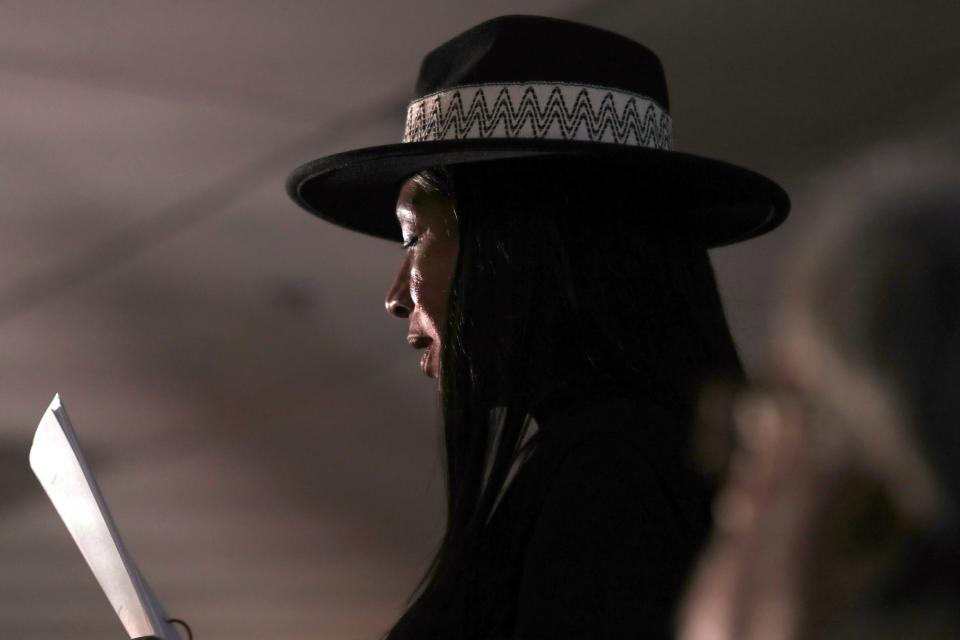
Making it personal
When Taylor looks back on his life, he sees it with a clarity that hasn't always been there.
As a child, he yearned to be a drummer. But unlike most prepubescent dreamers, he managed to make his dream a reality. As a teenager, famed pianist Little Richard praised Taylor's talents during a performance at the old Biltmore Hotel. Later, Taylor would contribute to albums helmed by the likes of George Harrison, Elton John and Sly & the Family Stone.
However, he says his past with Section 14 was never far from his mind.
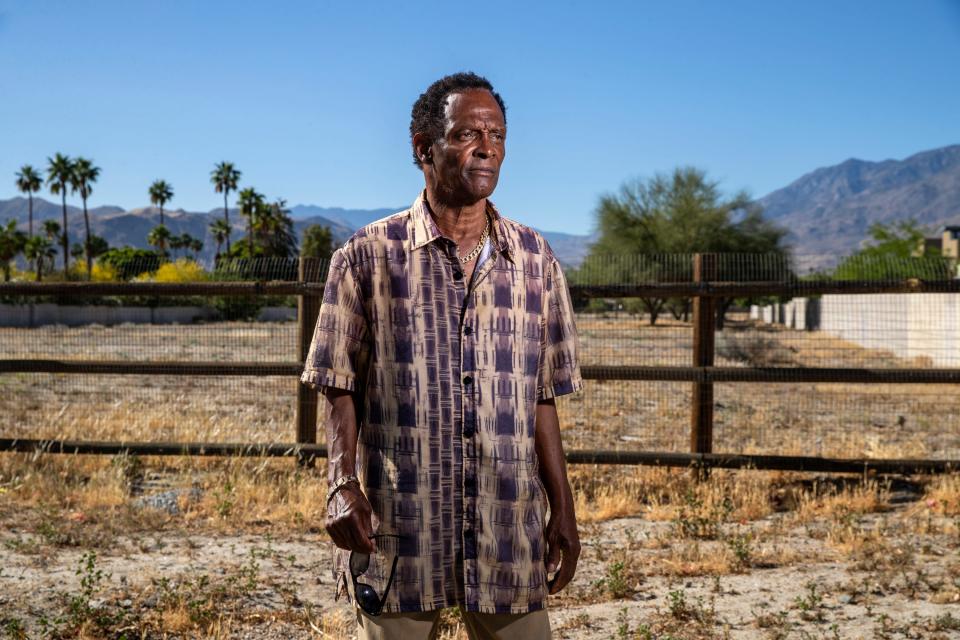
"When you're on an airplane sitting there with Elton John, traveling, working and earning the kind of money that you’re earning, you’re not thinking about trauma, you’re just enjoying yourself and having a good time," he said. "When you’re not doing that, then all of a sudden, you’re thinking about what took place."
He believes "major inappropriate decisions" can be traced to traumatic experiences from his childhood. He has admitted to drug use during the 1980s, while still involved in the rock n' roll life.
Taylor said it's taken him countless hours of therapy to try to understand the impacts of the Section 14 eviction on his life, a task with which he still struggles.
"I smelled the smoke. I saw the bulldozers. I was there," he said. "I have an accurate account of what took place."
In "Displacement," he is able to recall not only the destructive moments of his childhood, but also the joy he experienced. During a rehearsal, he gleefully recounted his experience with one of Section 14's most surprising residents (which won't be spoiled here).
It's taken Taylor many years to make sense of what happened. This play is his latest attempt to find peace in the void left when his family was forced to move.
"Someone says, 'Just get over it.' Well I will get over it when I get out from under it," he said. "What (the play) does is it allows some healing to take place, not just for me, but on behalf of everybody that’s involved."
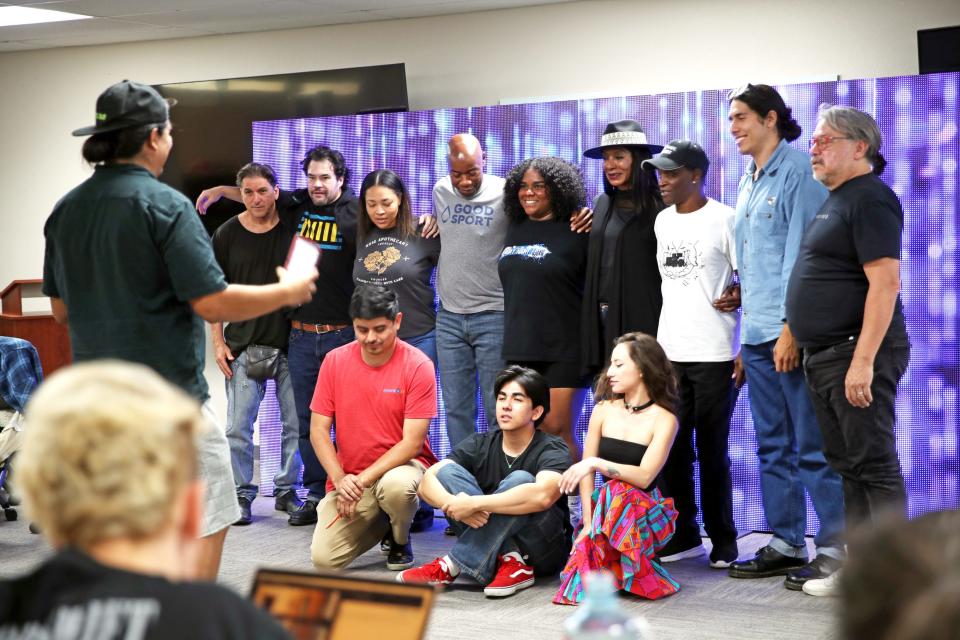
How to see a reading
Seven staged readings will take place over the next two weekends. The schedule is listed below.
United Methodist Church, located at 1555 E. Alejo Road in Palm Springs:
Saturday, June 22, 2 p.m.
Saturday, June 22, 6:30 p.m.
Sunday, June 23, 2 p.m.
Coachella Community Room, Library Building, located at 1500 6th St. in Coachella:
Friday, June 28, 6:30 p.m.
Saturday, June 29, 2 p.m.
Saturday, June 29, 6:30 p.m.
Sunday, June 30 2 p.m.
Tickets are available on a pay-what-you-can basis, beginning at $15. Reserve tickets at grtccv.org/section-14.
Sam Morgen covers the city of Palm Springs for The Desert Sun. Reach him at [email protected].
This article originally appeared on Palm Springs Desert Sun: Personal stories of Palm Springs’ Section 14 told in new play
